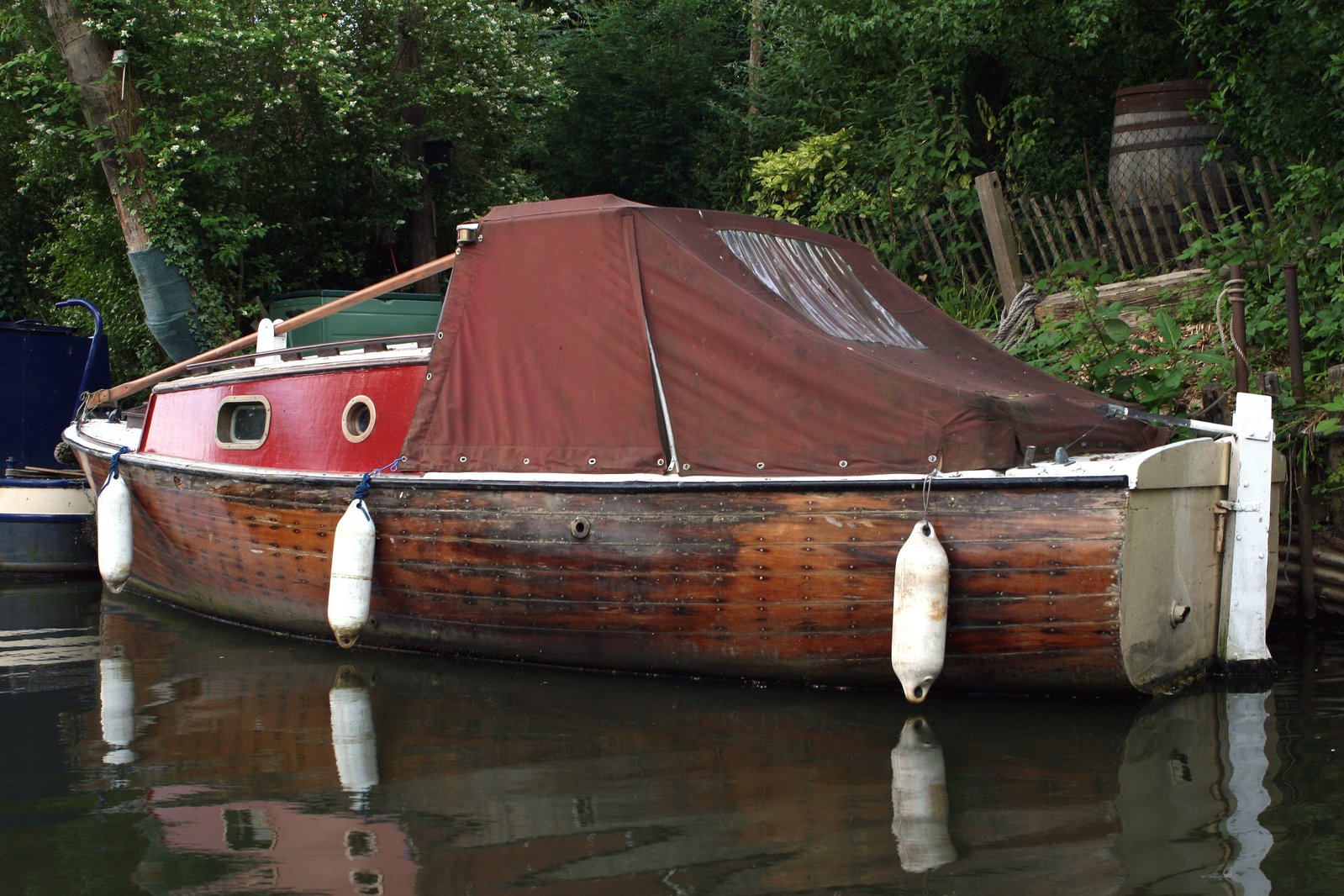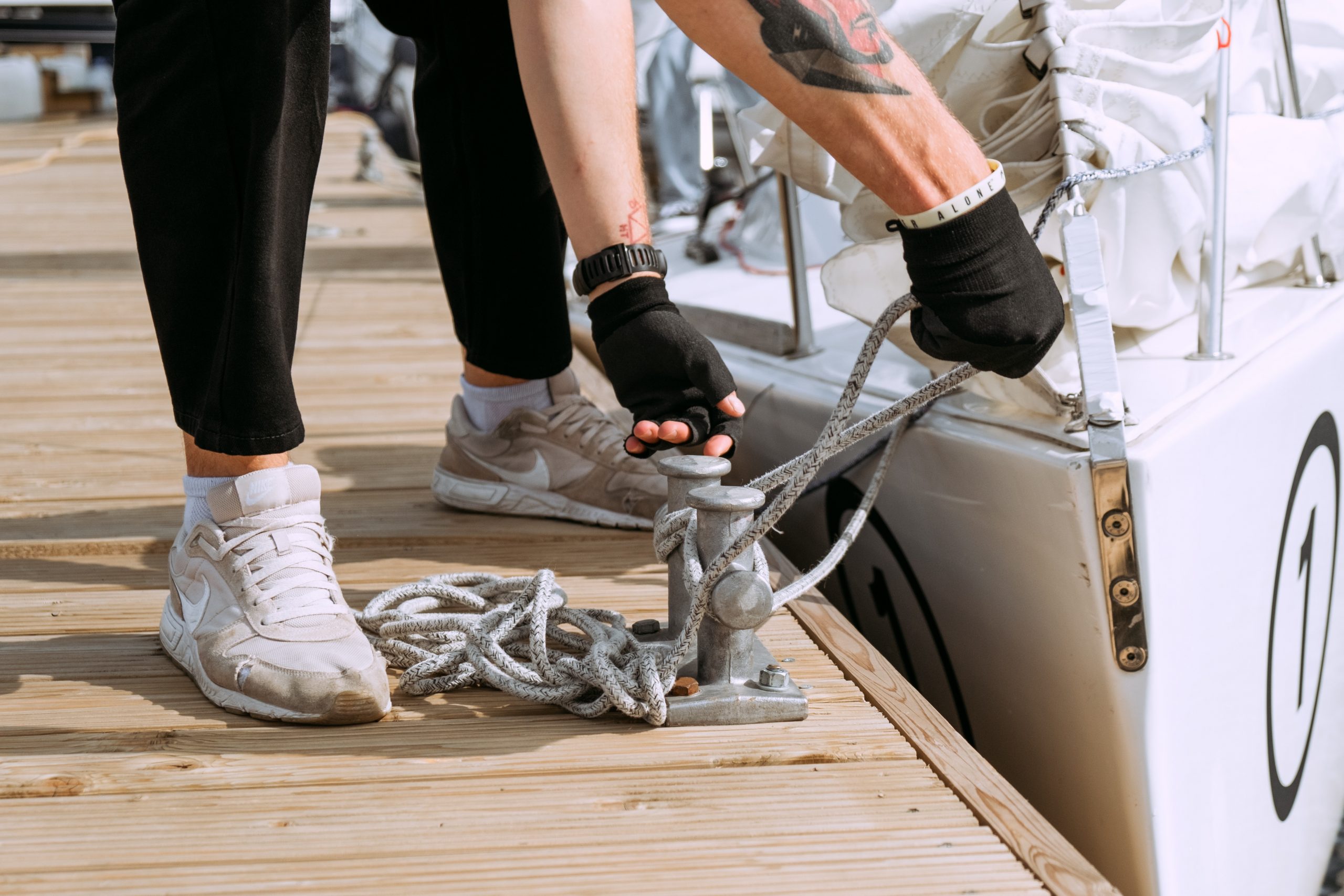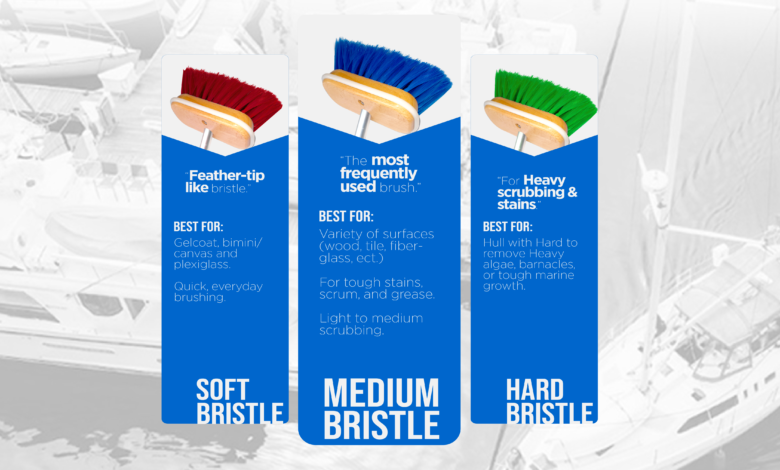
How do you choose the perfect brush for cleaning your boat? In this article we’ll explain how to pick a brush.
Deck Brush Bristle Stiffness
When you’re picking a deck brush, essentially you’re selecting based on the stiffness of the bristles. Deck brushes are going to come in one of three stiffnesses: soft, medium and hard. This will be the core buying factor when choosing a deck brush. Most people will have one of each bristle type.
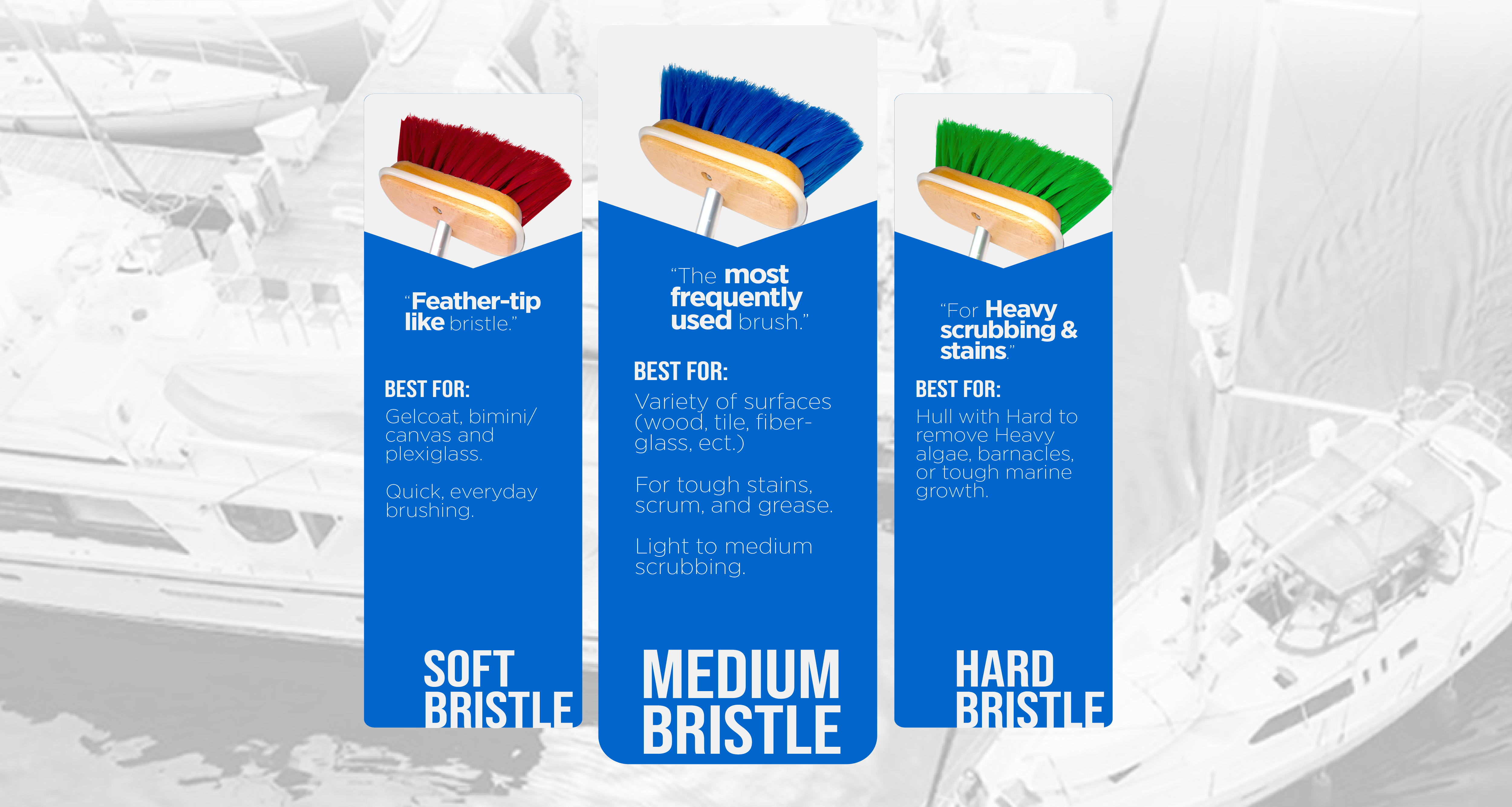
Soft Bristles
Best for: Delicate surfaces such as gelcoat, bimini/canvas and plexiglass.
Example Uses: Cleaning your gel coat or Plexiglas wind screens. Cleaning your boat bimini top.
Medium Bristles
Best for: A variety of surfaces without tough stains, including decks, non-skid areas, and hulls. They can handle light to medium scrubbing tasks.
Examples: Likely to be your most frequently used brush. Best for general cleaning of your deck and hull without any stubborn marine growth or other stains.
Hard Bristles
Best for: Heavy-duty cleaning tasks, such as removing tough stains and grime.
Examples: Cleaning from your hull heavy algae, barnacles, or other tough marine growth. Cleaning from your deck stubborn stains or oil spills. Cleaning your engine compartment.
Shape: Round vs Rectangular
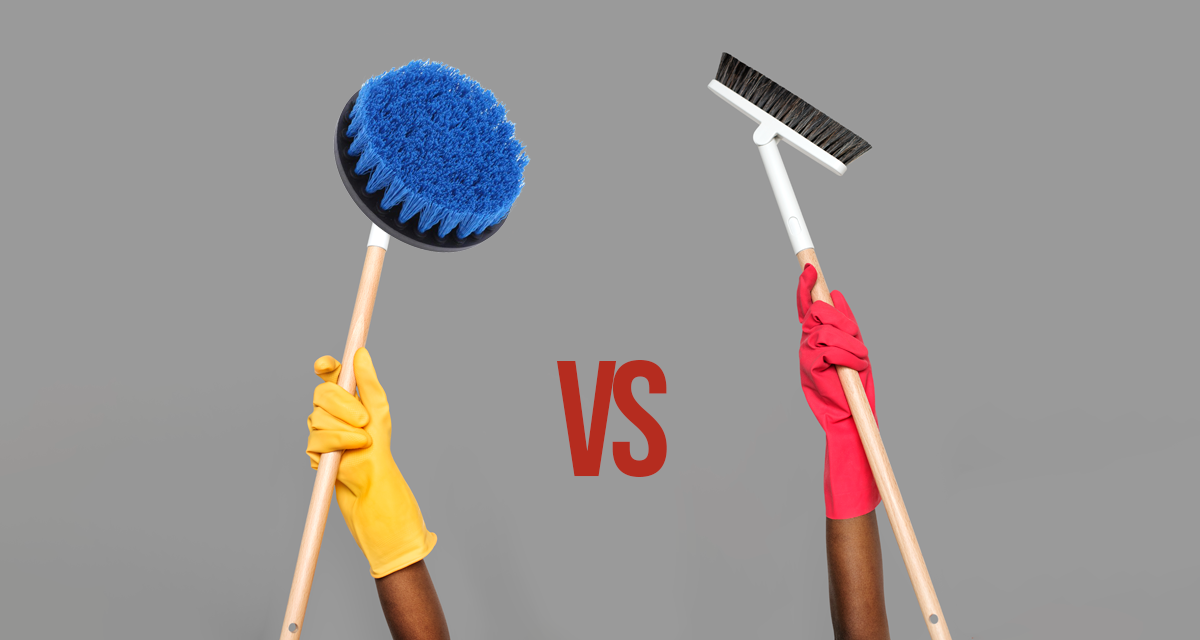
When picking a brush for your boat, you also want to consider the shape of the brush. Basically, boat brushes are going to come in two shapes: straight rectangular varieties and smaller round brushes. Straight brushes are going to be your most frequently used brush as they allow you to clean a larger area in a shorter amount of time. However, for curved areas (and boats have lots of them!), you’ll want a rounded brush. Conclusion: it’s best to have one of each.
Poles for Your Deck Brush
You’re going to want some type of pole to attach your deck brush to for cleaning. There are some complete kits sold, but most deck brushes will be sold separately from the attaching pole.
The good news is that most deck brushes will attach universally to boat poles with removable hooks. If you’re cleaning difficult to reach areas on your boat, keep in mind how long you need your pole to telescope to.
Bristle Material
A slightly less important consideration than the actual bristle stiffness on your deck brush is the bristle material.
Most deck brushes are going to come in one of a couple material types: synthetic materials (such as nylon or polyester) and natural fibers, such as horse hair. Synthetic fibers like polypropylene or nylon are often a good choice for stiffer deck brushes (i.e. medium and hard stiffness). For softer brushes, most of the cheaper brushes will still be made from synthetic fibers but you may also find natural fibers such as horse hair and boar hair. Natural fiber brushes are typically much softer (i.e. good for the most delicate surfaces) but also the most expensive.


